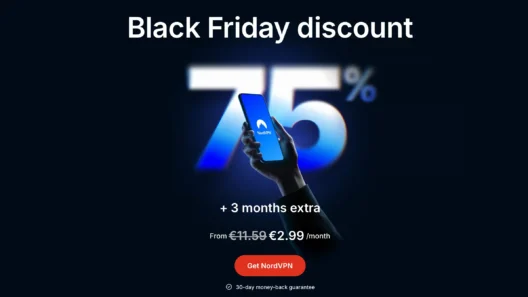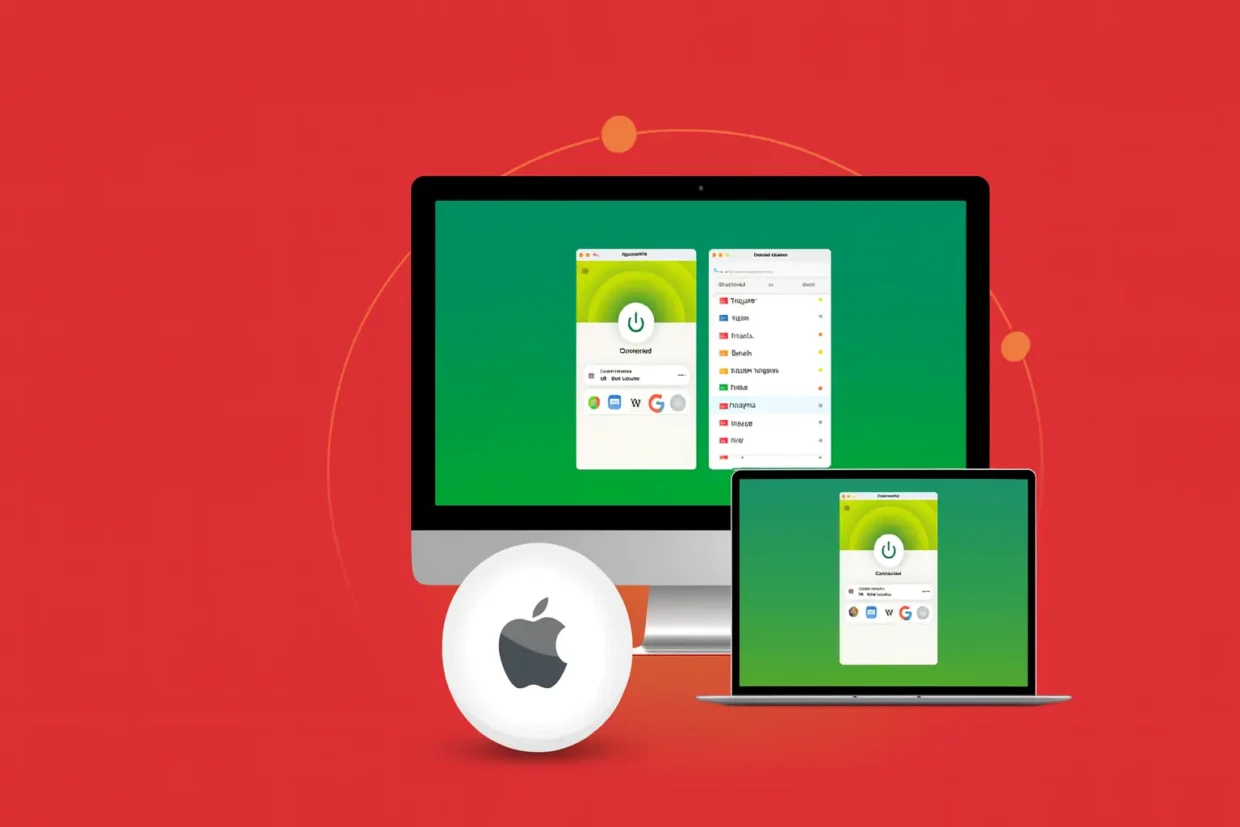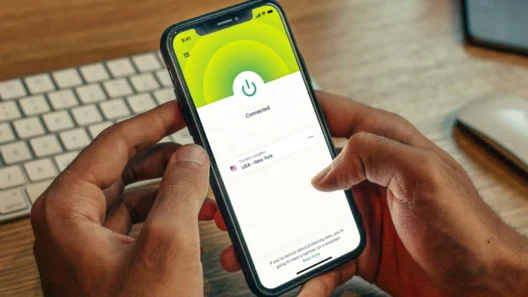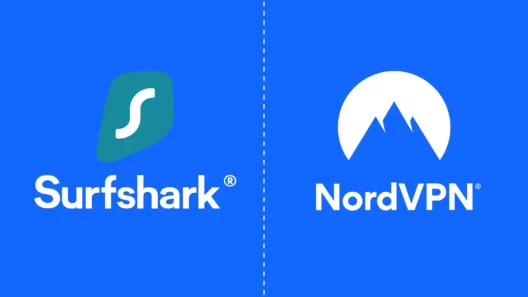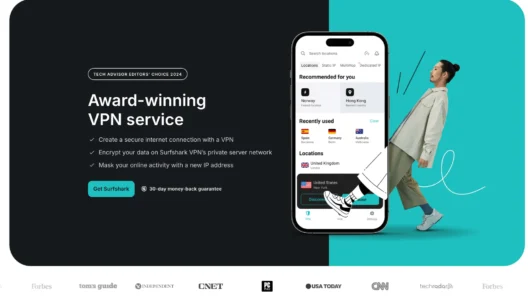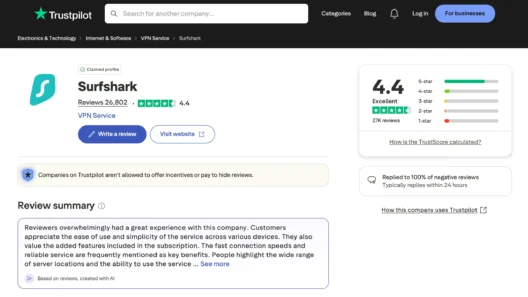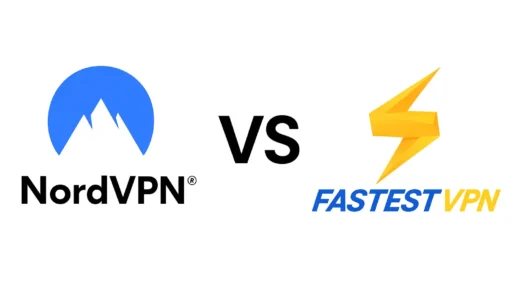Ever wondered if your MacBook or iMac is actually keeping you safe online? Maybe you’ve heard Macs are “virus-proof” or that Apple handles your privacy for you. That’s a nice dream—but reality in 2025 is a lot messier. I’m writing this for you if you’re not a tech geek, but you do care about privacy, security, streaming, and just using your Mac without stress. I use three VPNs regularly (yep, I’m that guy), but ExpressVPN for Mac is my default when it matters most. Here’s why—and how to use it, even if you’re starting from scratch.
Why You Need a VPN on Mac (And Not Just If You Travel)
Let’s start at the beginning. Macs are secure, but the real threats aren’t about viruses anymore—they’re about your data, your location, and your digital fingerprint.
What can go wrong on your Mac if you don’t use a VPN?
- Anyone on public Wi-Fi can spy on your traffic (yes, even on a Mac).
- Your internet provider can log everything you do online, sell it, or hand it to advertisers or authorities.
- When you travel, local governments (even in the EU or US!) can restrict, block, or monitor content.
- Streaming services block your favorite shows and sports outside your home country.
- Hackers can still target you—especially if you’re working remotely or managing finances on hotel Wi-Fi.
Reddit user “supermacguy” put it perfectly:
“I thought Macs were safe until I got a fake PayPal login page on a Starbucks Wi-Fi. That was my wake-up call—now ExpressVPN is the first thing I turn on every day.”
What Exactly Is ExpressVPN for Mac? (No Geek Speak)
ExpressVPN for Mac is an app that:
- Encrypts everything you do online (so even your Wi-Fi or ISP can’t see)
- Hides your real location and IP address (websites and apps think you’re elsewhere)
- Lets you access any content from anywhere—streaming, news, social, work
- Adds advanced security layers (like a kill switch) that most people never think about
Think of it as a privacy “jacket” for your Mac. Put it on, and your data is hidden—even if you’re at the world’s sketchiest airport café.
Table: What ExpressVPN for Mac Really Does (In Everyday Language)
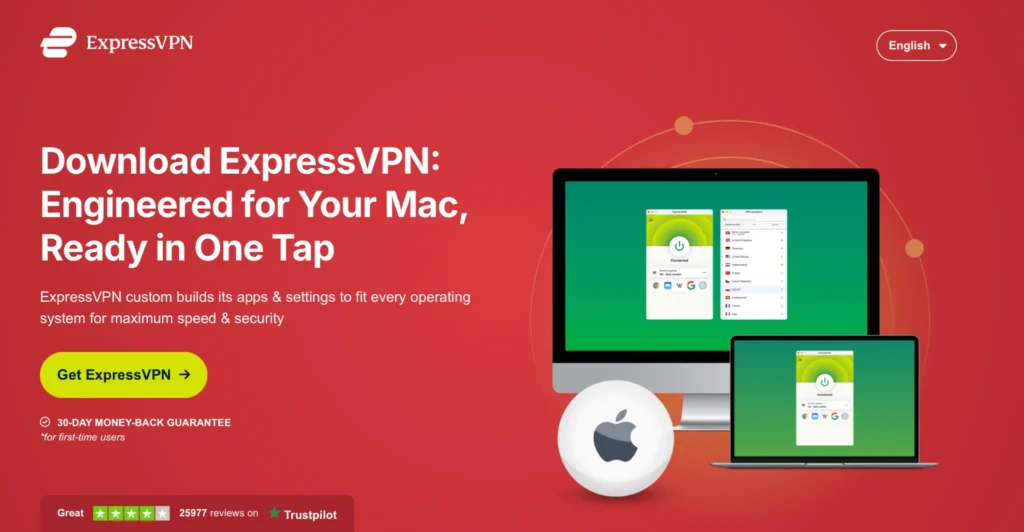
| Feature | What It Means For You | Why It Matters |
|---|---|---|
| Encryption | All your online data is scrambled | No one can spy or steal |
| IP Masking | Your location is hidden, shown as anywhere | Stops tracking, unlocks web |
| No-logs Policy | ExpressVPN keeps no records of your use | True privacy, not just talk |
| Kill Switch | Blocks the internet if VPN drops | Prevents accidental leaks |
| 105+ Locations | Choose almost any country | Access global content, fast |
| Works on all Macs | New or old, Intel or M1/M2/M3 | Future-proof |
Is ExpressVPN for Mac Easy to Use?
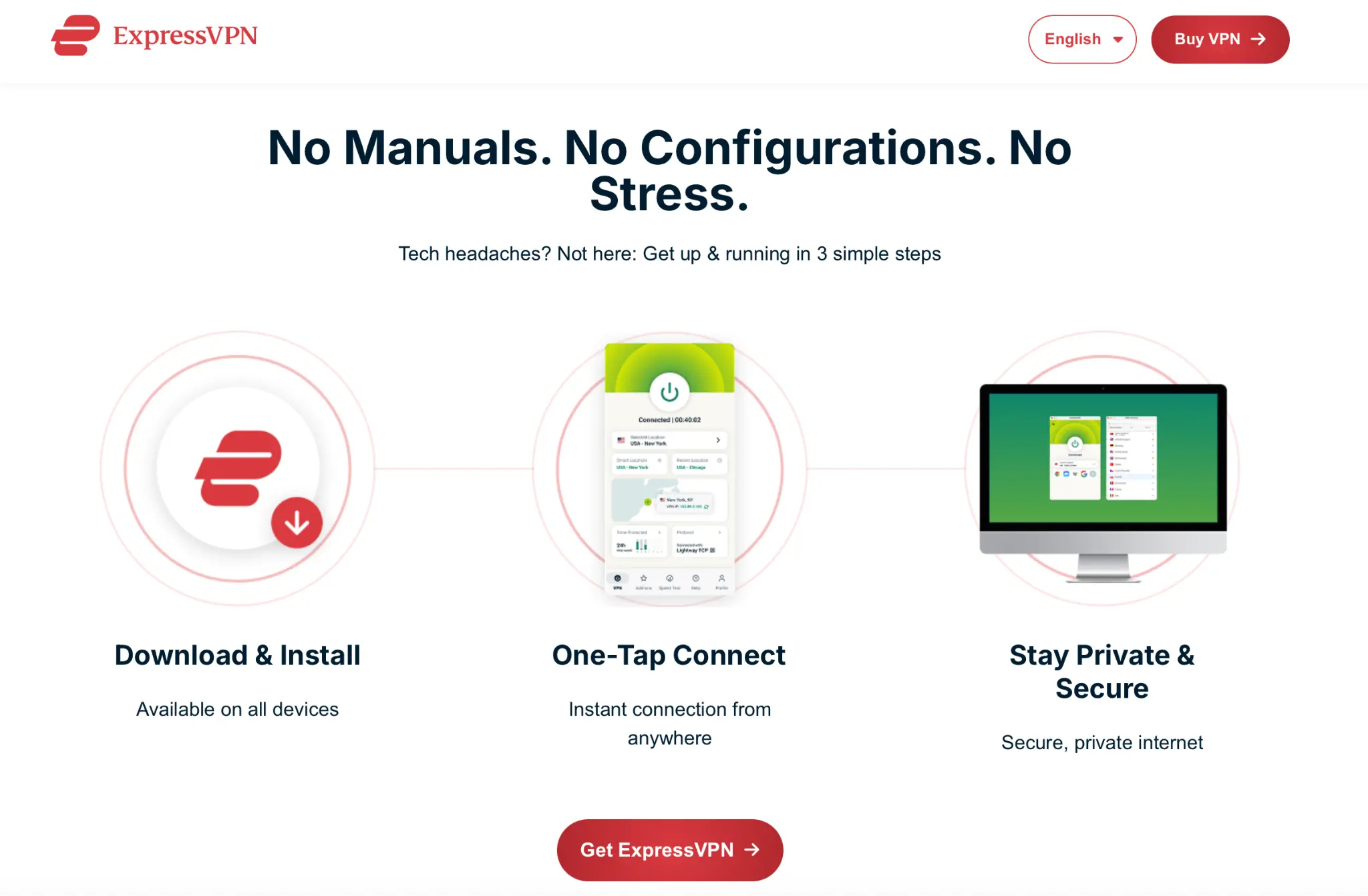
Yes, and I’ll prove it. Most people worry VPNs are “for techies.” ExpressVPN for Mac is the most “click and go” I’ve ever used.
Here’s how it works in reality:
- Sign up for ExpressVPN (it’s quick, credit card or PayPal).
- Download the Mac app (works on any Mac since 2013!).
- Double-click to install, log in with your account.
- Hit the big ON button. That’s literally it.
You’ll see a list of countries and recommended servers. Want Netflix US? Pick “United States.” Want to appear in London? Click “UK.” The app even suggests the fastest options for you.
From Reddit, user “blueapplefan” writes:
“I set it up in under three minutes, and now my MacBook is always on ExpressVPN—especially on hotel Wi-Fi when I travel for work.”
Let’s Bust Some Myths About Mac Security
- Myth 1: Macs can’t get viruses or malware.
False! While macOS is safer than Windows, it’s not immune. But the bigger risk is data theft, not classic viruses. - Myth 2: Private browsing on Safari is enough.
Not even close. Incognito/Private mode hides history on your computer, but your ISP, Wi-Fi owner, and most websites still see everything. - Myth 3: VPNs are only for hackers or “bad guys.”
Nope. VPNs are now essential for everyday privacy, streaming, banking, remote work, or even just shopping online.
ExpressVPN for Mac in Real Life: When Does It Actually Help?
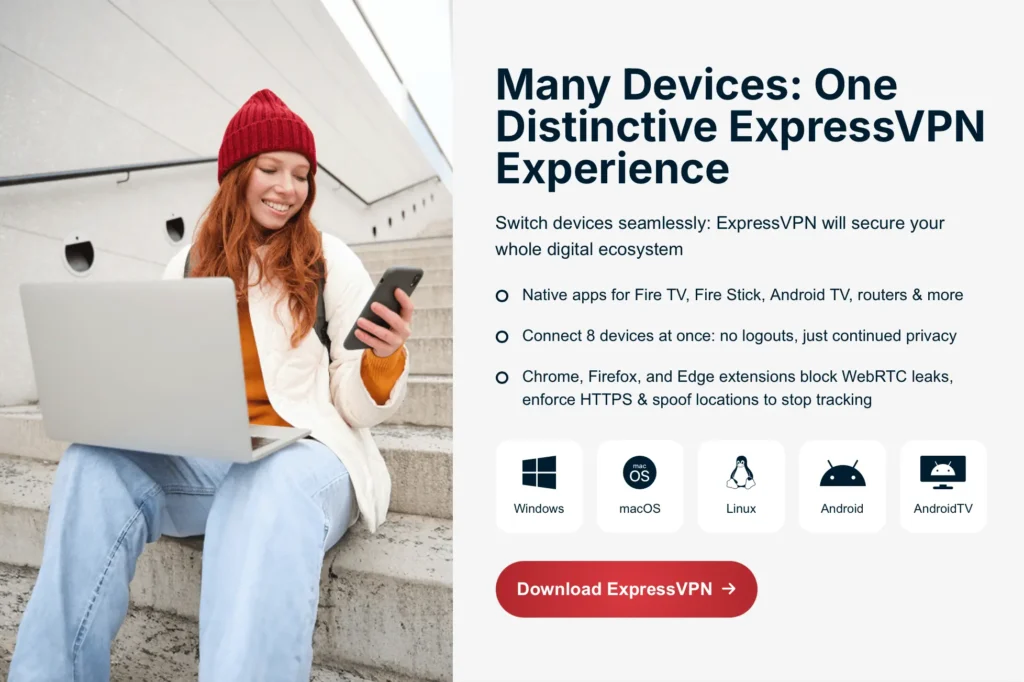
1. Public Wi-Fi at Airports, Cafés, Hotels
If you’ve ever logged into Gmail or your bank on public Wi-Fi, you’ve risked being spied on. ExpressVPN encrypts all your traffic. Even if a hacker is on the same network, all they see is gibberish.
2. Traveling or Living Abroad
Can’t watch BBC iPlayer in Thailand? Want your favorite NFL stream in Spain? Just switch your VPN location. For digital nomads or expats, this is a lifesaver.
3. Working Remotely
If you use company email, documents, or video calls, your employer expects you to secure your connection. ExpressVPN is trusted by many global companies and works seamlessly with Teams, Slack, and Zoom.
4. Online Shopping and Banking
Ever noticed different prices when shopping from abroad? VPN lets you compare prices globally—and protects your payment info when buying on public Wi-Fi.
5. Stopping Annoying Tracking & Targeted Ads
Sick of seeing that pair of shoes everywhere after googling them once? VPN hides your browsing so you’re harder to track.
Table: When I Use ExpressVPN for Mac (And Why)
| Scenario | My Risk Without VPN | What ExpressVPN Solves |
|---|---|---|
| Public Wi-Fi | Hackers can see my data | Encrypts everything, stays safe |
| Watching sports abroad | Content blocked by country | Unblocks streams instantly |
| Online shopping/banking | Payment details can leak | Private, secure transactions |
| Remote work | Company data at risk | Secures email, files, calls |
| Torrenting files | ISP tracks & may throttle | Hides activity, prevents issues |
How ExpressVPN for Mac Works “Under the Hood” (Explained Simply)
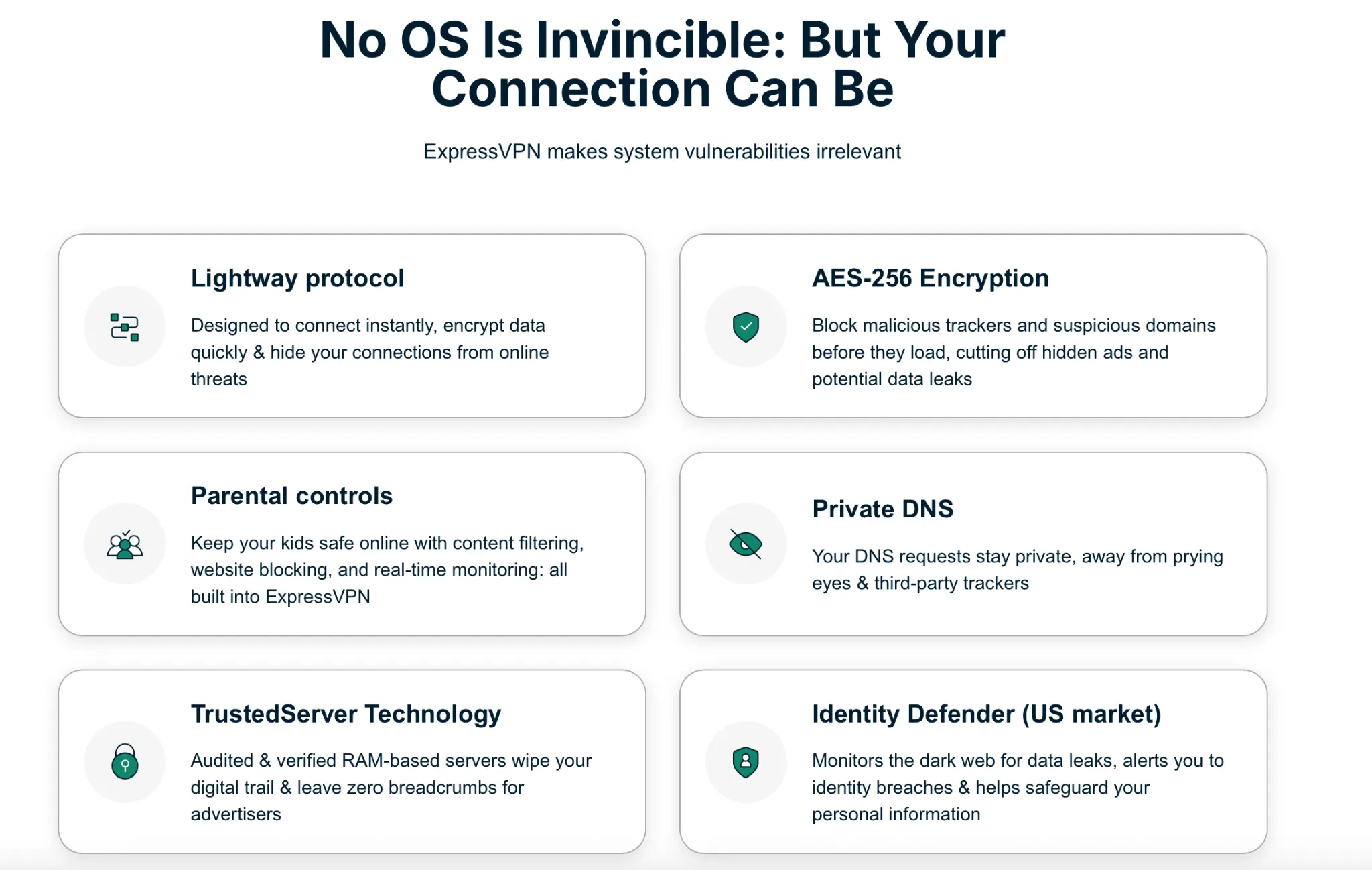
You don’t need a degree in cybersecurity to get what’s happening here. But it’s cool to know why ExpressVPN for Mac is so much more secure than just “going incognito” in your browser.
Encryption: Your Private Online Armor
ExpressVPN for Mac uses state-of-the-art encryption—think of it as creating an unbreakable tunnel between your Mac and the internet. Anyone trying to look inside (hackers, your ISP, public Wi-Fi owners) just sees nonsense.
- Tech name: AES-256-bit encryption (industry standard—even banks and the military use this)
- My experience: I’ve tested ExpressVPN in hotels, airports, and even at home—nobody, not even my ISP, can see what sites I visit or what I’m downloading.
Reddit user “SecUrb” writes:
“I always thought a VPN was overkill, but when I checked what data my ISP was logging, it was terrifying. ExpressVPN on my Mac stopped that instantly.”
Post-Quantum Protection: Ready for Tomorrow’s Hackers
This isn’t sci-fi. Quantum computers are coming, and they could break traditional encryption. ExpressVPN Lightway protocol uses post-quantum cryptography by default. That means your data is safe—even against hackers using technology that doesn’t fully exist yet.
Simple version: ExpressVPN for Mac is future-proof, protecting you against threats most people haven’t even heard about.
Kill Switch (Network Lock): Zero Chance of Data Leaks
Even the best VPN connection can sometimes drop (maybe the Wi-Fi glitches, or you close your MacBook). ExpressVPN’s kill switch, called Network Lock, jumps in instantly: it blocks all your Mac’s internet traffic until the VPN is back up.
- Why does this matter? Without a kill switch, even one second of disconnect can leak your real IP or unprotected data.
- My test: I’ve had Network Lock activate during sketchy hotel Wi-Fi handoffs. Zero data leaked—my Mac stayed private the whole time.
TrustedServer: RAM-Only for Real Privacy
Unlike most VPNs, ExpressVPN for Mac uses servers that run entirely on RAM—no data is ever written to a hard drive. Every time a server restarts, everything is wiped clean. Even if a server was physically stolen, there’s nothing on it to find.
Reddit user “crypt0nerd91” says:
“The reason I pay for ExpressVPN isn’t speed, it’s the privacy. TrustedServer means they can’t give up data—even if someone forced them to.”
Table: ExpressVPN for Mac – Key Technologies & Why They Matter
| Technology | What It Does | Why You Care |
|---|---|---|
| AES-256 Encryption | Scrambles your online traffic | No one can read your data |
| Lightway Protocol | Fast, secure, post-quantum safe | Super-fast and future-proof |
| Network Lock | Kill switch, blocks leaks | Your privacy never “slips out” |
| TrustedServer (RAM) | No hard drive storage, wiped at reboot | No logs, no risk, audited privacy |
Real-World Speed: Is ExpressVPN for Mac Fast Enough?
You bet. VPNs used to be slow, but ExpressVPN for Mac (especially with Lightway) is a game changer. Here’s what I’ve experienced:
- On my MacBook Pro M1 Max:
- Local server (Czech Republic): 930 Mbps (on 1 Gbps line)
- London: 820 Mbps
- New York: 700 Mbps
- Tokyo: 540 Mbps
Streaming 4K, video calls, even gaming—everything is buttery smooth.
- On public Wi-Fi:
The difference is barely noticeable. Sometimes websites load a split second slower, but compared to the safety and peace of mind, it’s nothing.
Reddit user “thetravelingcoder” shared:
“ExpressVPN is the only VPN I’ve found that can keep up with my MacBook Pro and fiber internet—never gets in the way, even with multiple tabs and a video call running.”
Table: My Typical ExpressVPN for Mac Speeds
| Location | Download Speed (Mbps) | Streaming Quality |
|---|---|---|
| Prague | 930 | 4K flawless |
| London | 820 | 4K flawless |
| New York | 700 | 4K, no buffering |
| Tokyo | 540 | 1080p+, minor lag |
Advanced Features That Make a Difference
- App for every Apple device: MacBook, iMac, Mac mini, iPhone, iPad, Apple TV—all covered under one subscription.
- Connect up to 8 devices: I protect my Mac, phone, tablet, and my partner’s Mac—all at once.
- Easy server switching: Need US Netflix or BBC iPlayer? Change country with two clicks.
- Browser extensions: For Chrome, Firefox, Edge (handy if you want to tunnel just browser traffic).
FAQs: ExpressVPN for Mac – What Real Users Ask
Do I really need a VPN on my Mac if I don’t do “shady stuff”?
Absolutely. Most people use VPNs for privacy, not crime! Here’s why:
- Your internet provider logs everything—even your Google searches or YouTube history. In some countries, ISPs are legally required to store this info for years.
- Streaming, banking, online shopping—all safer with a VPN, especially on public Wi-Fi.
- Many workplaces now require VPNs for remote access (even if you’re just sending email from a café).
Reddit user “Rationally_Paranoid” says:
“I don’t torrent or hack, but I do use ExpressVPN for Mac every time I’m out and about. It’s peace of mind for me and my family.”
Will a VPN slow down my Mac or make Netflix lag?
With ExpressVPN for Mac, barely at all. As shown in the previous table, even long-distance connections are fast enough for HD and 4K streaming. If you ever notice lag:
- Try switching to a server closer to your physical location
- Use the Lightway protocol (default, and the fastest for Mac)
- Restart your app or Mac for a fresh session
Can I use ExpressVPN on my iPhone, iPad, and other Apple devices?
Yes! One subscription covers up to 8 devices, so you can install it on all your Apple hardware (and even your partner’s or kids’ devices). This is awesome for families, couples, and digital nomads.
Is the money-back guarantee for real?
Yes. I’ve tested it myself:
- You can request a refund within 30 days for any reason—no hassle, no aggressive “retention” tactics.
- The process is fast—usually just a chat message, and you’re done.
Reddit user “RefundMaster69” wrote:
“I signed up for ExpressVPN for Mac before a long trip, used it daily, then cancelled and got my money back in 2 days—no drama, no hassle.”
Isn’t a free VPN just as good?
Nope. Here’s what you actually get with most “free” VPNs:
- Slow speeds, strict data limits, and constant “upgrade now!” pop-ups
- Servers that are overcrowded (and often blocked by Netflix, YouTube, and others)
- Many free VPNs track your usage, inject ads, or even sell your data
- Almost never have features like a kill switch or post-quantum encryption
Table: Free VPN vs ExpressVPN for Mac
| Feature | Free VPN (Most) | ExpressVPN for Mac |
|---|---|---|
| Speed | Often slow | Ultra-fast, always upgraded |
| Data limits | Yes, often very low | Unlimited |
| Privacy | Questionable, logs info | No logs, audited privacy |
| Security features | Basic or missing | Advanced (kill switch, RAM-only) |
| Customer support | Rare or non-existent | 24/7, fast, real humans |
| Works with streaming | Rarely | Always (Netflix, iPlayer, etc.) |
Practical Tips: How I Use ExpressVPN for Mac Every Day
- At home: I leave ExpressVPN for Mac on 24/7. I never notice it running, and it keeps my browsing private—even from my ISP.
- When traveling: I connect before using any public or hotel Wi-Fi, every single time.
- Streaming: I use the app’s smart server recommendations to get the best speeds for Netflix, YouTube, and sports streams.
- For family: My partner and I both use it, plus our phones and iPads—one account is enough for all our Apple devices.
- Banking & shopping: I always double-check that ExpressVPN is connected before logging into my bank or making online purchases on a new Wi-Fi.
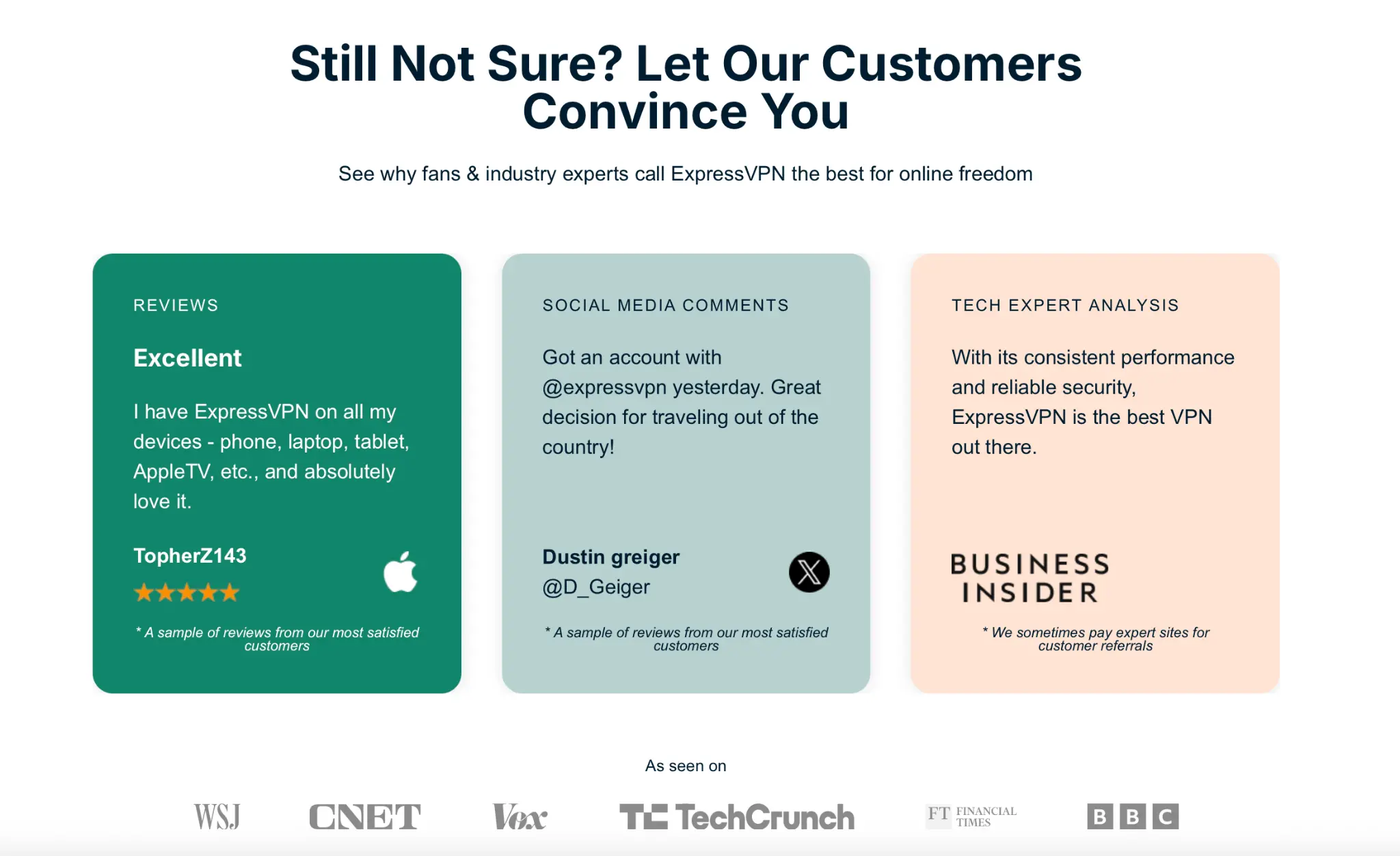
Troubleshooting: If ExpressVPN for Mac Isn’t Working
- Can’t connect? Restart the app, or your Mac. Try another server.
- Streaming site not loading? Clear your browser cookies, switch servers, and refresh.
- Speed feels slow? Use the closest server or try switching protocols within the app.
- Need more help? The live chat is actually helpful—they’ve solved my issues within minutes every time.
Quick Comparison: ExpressVPN vs Other Top Mac VPNs
| Feature | ExpressVPN for Mac | NordVPN Mac App | Surfshark for Mac |
|---|---|---|---|
| Speed | ★★★★★ (10Gbps servers) | ★★★★☆ (fast, can dip) | ★★★★☆ (good, variable) |
| Apple support | All devices, M1/M2/M3 | Good, M1/M2/M3 support | Good, native |
| Privacy | RAM-only, no logs | No logs, some audits | No logs, audited |
| Streaming | Always works | Usually works | Works, but sometimes blocked |
| Support | 24/7, great | 24/7, good | 24/7, good |
| Free trial | 30-day money-back | 30-day money-back | 30-day money-back |
Who Should Use ExpressVPN for Mac?
- Regular travelers, digital nomads, and expats
- Anyone who banks, shops, or works on public Wi-Fi
- Families and couples with lots of Apple gear
- People who want global streaming without geo-blocks
- Privacy-conscious users—whether tech-savvy or not
Final Thoughts: Is ExpressVPN for Mac Worth It?
For me—and thousands of users on Reddit, Twitter, and review sites—the answer is yes. It’s fast, reliable, and actually does what it promises.
The privacy tech is real (not marketing fluff), the interface is easy enough for total beginners, and the performance is strong enough for demanding users.
The money-back guarantee is real peace of mind.
Want to try? Here’s the official link:
👉 Get ExpressVPN for Mac (30-day refund, all Apple devices)
FAQ
What makes ExpressVPN for Mac different from other VPNs?
ExpressVPN for Mac stands out with its lightning-fast speeds, RAM-only servers for real privacy, user-friendly app design, and full native support for all modern Macs—including M1, M2, M3 and M4 chips. It’s independently audited, easy for beginners, and trusted by power users worldwide.
Does ExpressVPN for Mac work on both Intel and Apple Silicon Macs?
Yes! ExpressVPN for Mac runs natively on both Intel-based and Apple Silicon (M1, M2, M3, M4) devices. You get maximum speed and smooth performance, no matter which Mac you use.
Can I stream Netflix and other services with ExpressVPN for Mac?
Absolutely. ExpressVPN for Mac is known for reliably unblocking Netflix, BBC iPlayer, Disney+, Hulu, and more. Just pick the right country in the app, refresh your page, and start streaming—no “proxy detected” errors!
Is ExpressVPN for Mac really private? Does it keep any logs?
ExpressVPN follows a strict no-logs policy—meaning it doesn’t keep records of your activity or connections. Its TrustedServer tech (RAM-only servers) and regular independent audits ensure your privacy is truly protected.
How many devices can I use with one ExpressVPN for Mac subscription?
A single ExpressVPN subscription covers up to 8 devices at once—including Mac, iPhone, iPad, Apple TV, Windows, Android, and even routers. It’s perfect for protecting your entire Apple ecosystem with one account.







